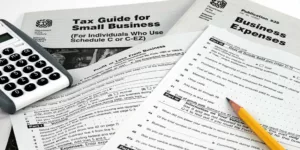Small businesses should be trying to reduce their tax bills. When a small business is first starting, every bit of taxes paid means that the business has less free cash flow to make purchases and pay bills.
There are ways, including ways to reduce property taxes, that can help a small business reduce their tax bill this coming year.
These four techniques will help you reduce your small business’ tax burden:
1. Hire Your Children – Seriously
You can hire your children, and this will allow you to divert some of your funds to lower your taxes. Minors, or those under the age of 13, may be able to work, depending on the exemption. Children are allowed to work at home if they’re under 14.
Why does this matter for your taxes?
Children can result in a lower marginal rate for the business, and it’s possible to hire your spouse, too. When hiring a spouse that has another form of income, it may be possible for most of the money to be diverted into a savings account, reducing your overall tax liability.
The income a child earns can be placed on a Roth IRA, reducing tax responsibilities.
Make sure that you work with a lawyer or accountant to ensure that hiring your child is within the confines of the law.
2. Question Your Business’ Property Taxes
Property assessors make mistakes a lot. And when you’re paying taxes on your business’ property, you may be losing money. The goal should be to examine your business’ property taxes and appeal the tax assessment.
Mistakes alone in Cook County Illinois may be costing businesses millions of dollars annually.
You can either demand a new tax assessment, or you can continue overpaying on property taxes. And, oftentimes, the information that is used for a tax assessment is the information that was on the tax file in the past.
Outdated information may lead to errors, or the old documentation may contain errors that are being used in your current assessment.
“Commercial property owners can appeal the first-pass assessment on the notice received from the Assessor. An appraiser can produce an independent report outlining the value of the property to use in the property tax appeal. According to a report by ProPublica, since 2010, 70 percent of appeals were granted a reduction by the Cook County Assessor’s Office,” explains Law Offices of Gary H Smith, P.C..
3. Start Saving for Retirement
A lot of people, especially business owners, think that they’ll never be able to retire. When you have this outlook, you’re paying too much money in taxes already. And if you’re the type of person that has opened their own trading account and started doing their own retirement investments, you may want to consider your 401 (k) options.
Why?
Savings accounts for a sole business owner is the Independent 401(k). This account is a traditional account meant for a business with no employees.
Owners will be able to contribute as both an employer and an employee under these accounts. Elective deferrals are:
- $18,500 in 2018 for anyone under 50
- $24,500 in 2018 for anyone 50+
But you can also use nonelective contributions of up to 25% compensation. Total contributions for a person age 50 or older, not including catch-up contributions, for a person 50+ is limited to $55,000 in 2018.
4. Deduct Vehicle and Home Office Expenses
If you have a business vehicle that you use often, you can elect to claim the usage on your taxes. There’s an IRS mileage limit which will change. The amount that was allowed to be deducted in 2017 was $0.535 per mile. This means for every 10 miles driven, you can deduct $5.35 on your taxes.
Your vehicle will begin to depreciate in value, so it’s important to consider what will be the better option.
You may find it better to deduct repairs, fuel and other upkeep costs if they’re higher than the miles driven deductions.
Home office expenses can also be deducted. You can write-off your home office’s square footage, utilities, supplies and other equipment. Actual costs of the deduction are around $5 per square foot for up to 300 square feet of office space.
If you have a bathroom dedicated to business operations, you can deduct the space as well as any supplies you need in the office.








